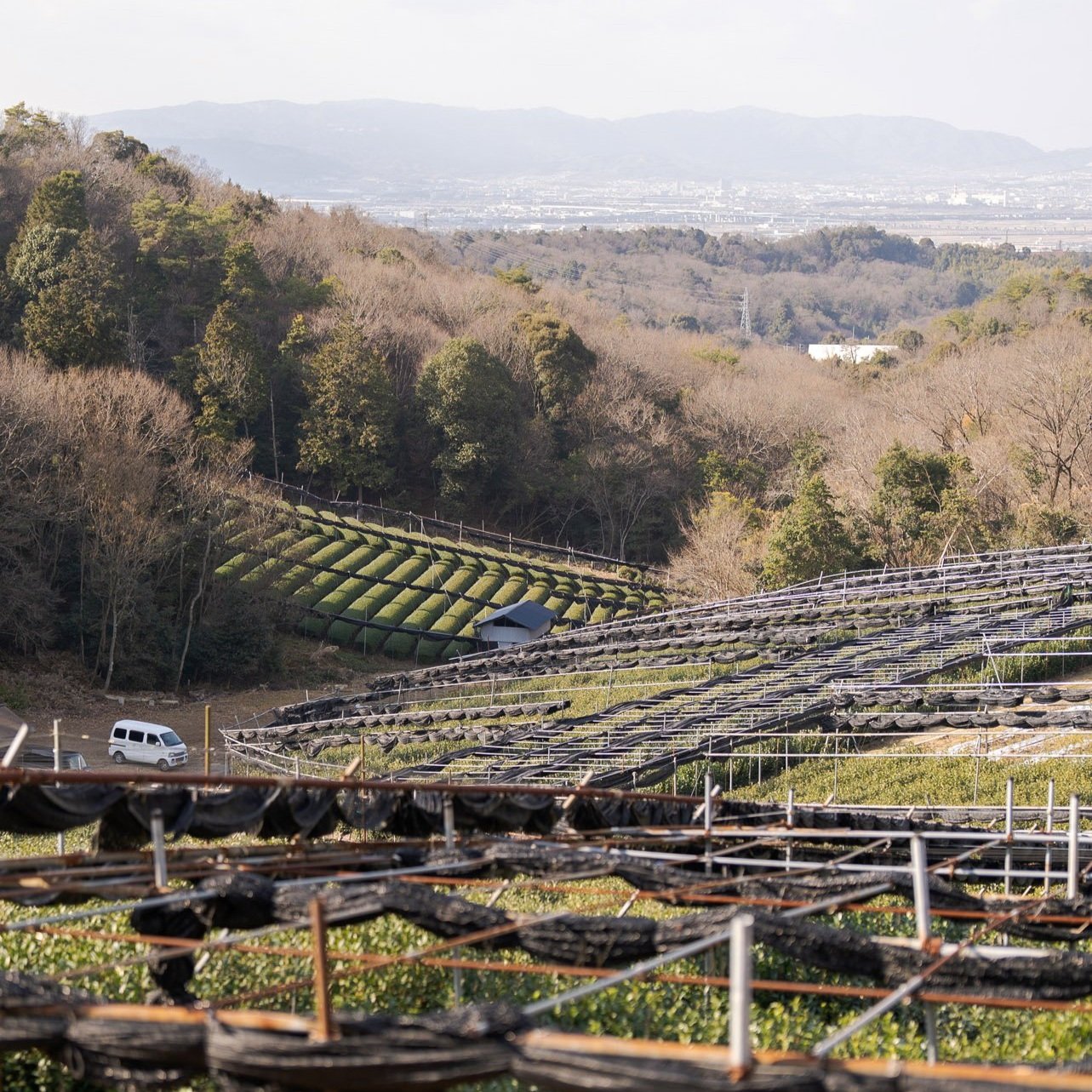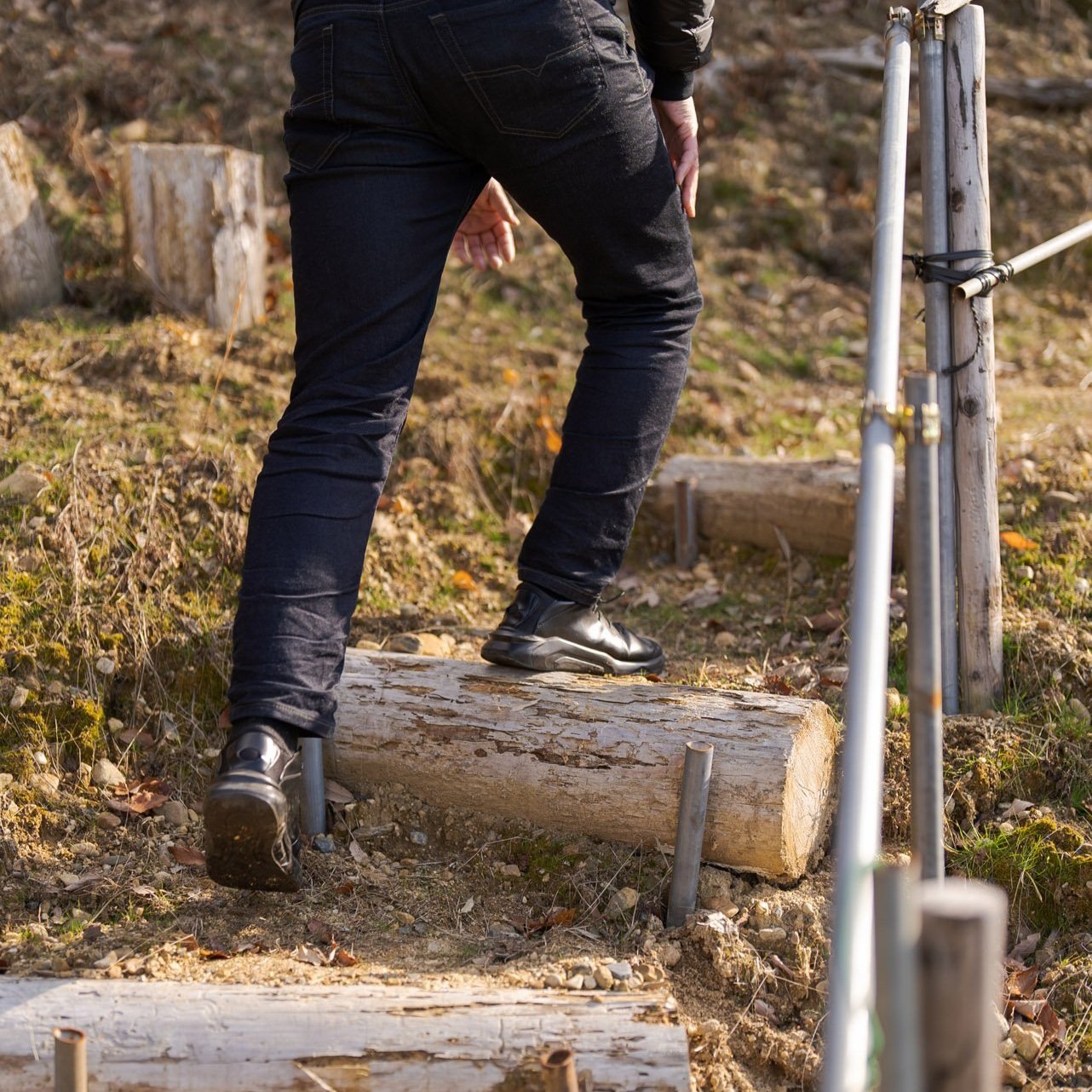 Image 1 of 2
Image 1 of 2

 Image 2 of 2
Image 2 of 2

Gokou Matcha - Tsujiさん Shirakawa Uji. 20g
Deep Woods. Glazed Meats. Young Evergreen.
Gokou cultivar, perfectly suited for creating deeply aromatic, savory, and sensual Matcha, especially when grown in Uji, Kyoto—as Tsujiさん’s Goukou Matcha is.
🏆 Awarded Producer
Recipient of the highly prestigious Minister of Agriculture, Forestry and Fisheries Prize (農林水産大臣賞.)
The only Recipient of the Emporer Award for Matcha in Japan's History.
Stone-Milled: Fresh ground in Lawrenceville, NJ
Deep Woods. Glazed Meats. Young Evergreen.
Gokou cultivar, perfectly suited for creating deeply aromatic, savory, and sensual Matcha, especially when grown in Uji, Kyoto—as Tsujiさん’s Goukou Matcha is.
🏆 Awarded Producer
Recipient of the highly prestigious Minister of Agriculture, Forestry and Fisheries Prize (農林水産大臣賞.)
The only Recipient of the Emporer Award for Matcha in Japan's History.
Stone-Milled: Fresh ground in Lawrenceville, NJ
Deep Woods. Glazed Meats. Young Evergreen.
Gokou cultivar, perfectly suited for creating deeply aromatic, savory, and sensual Matcha, especially when grown in Uji, Kyoto—as Tsujiさん’s Goukou Matcha is.
🏆 Awarded Producer
Recipient of the highly prestigious Minister of Agriculture, Forestry and Fisheries Prize (農林水産大臣賞.)
The only Recipient of the Emporer Award for Matcha in Japan's History.
Stone-Milled: Fresh ground in Lawrenceville, NJ
About this Matcha
Deep, emerald aroma that is weighty, complex, and mossy, dark and brooding maple syrup. Soft and billowy powder, with a charming spring green color that’s lightness, seems to contradict the gravity of the aroma.
The exposure of the powder seems to trap and absorb light, rather than reflect it. Once aerated, the foam is uncharacteristically more vivid than the power. Rich umami — with flavor moving away from the sea and into the forests.
Mouth watering, mirin, and salt-glazed meats. Moss, some evergreen — refreshing on the front of the tongue, long-lasting savory. Sweetness is balanced. A deep, treasure to drink.
From the hands of Tsujiさん, one of the highest-awarded tea producers in all of Japan, in the heart of Shirakawa, Uji, Kyoto, Japan.
This Gokou cultivar is 100% hand-picked (known as Tezumi), and is notable for containing the highest levels of L-Theanine (the savory and sweet tasting Amino acid in Matcha) than any other tea in Japan.
-
Gokou is a notable cultivar as it’s a specialist, rather than a generalist. Other cultivars can produce excellent tea when grown in different regions, or when processed into different forms of Tea. But Gokou is unique in that it excels when shaded to produce Matcha, and when grown in Kyoto — specifically Uji.
In this way, Gokou shares characteristics with its Kyoto-based brother: Uji-hikari.
Both cultivars are best when shaded, are best when grown in Uji, and both are named for light. Uji Hikari translates to “Uji’s Light”, while Gokou refers to a glowing Halo (such as on an angel.)
While the brother cultivars both feel warming and illuminating, Uji-Hikari tends towards bright, flashy notes while Gokou tends to deeper, resonating illumination.
-
To make a fresh and smooth bowl of Usucha or Koicha, follow our brewing instructions.
-
Long-term Storage: Store unopened Ooika Matcha in the refrigerator. Consume within 6 months.
Room-Temp Short-term Storage: Store opened Ooika Matcha in a cool, dark place away from sunlight. Consume within 3 months.
Refrigerator Short-term Storage: Opened Matcha can be stored in the refrigerator to help maintain freshness, however, the Matcha is at risk of condensation when cooler than ambient air. For this reason, if you choose to store an opened Matcha in the refrigerator, be sure to take the Matcha you need and then immediately place it back in the refrigerator to minimize exposure to the warm air.
Ochairinikki (御茶入日記)
Category Green tea (お茶) |
Subcategory OISHITACHA (おおいしたちゃ) |
Grade Indigo (Beyond Ceremonial) |
Terroir Shirakawa, Uji, Kyoto, Japan |
Vintage 2021 |
Cultivar Cultivar: Gokou (ごこう) |
Harvest Method 100% handpicked (手摘み, Tezumi) |
Shading Style Kanreisha (寒冷紗) (Double-net cold gauze type, 95% light-blocked) |
Shading Duration 58 days |
Milling Ishi-Usu (石臼) Stone-Milled by Ooika |
Packaging Cold-stored, oxygen-free bag |
Use Usucha, Koicha |


Tsujiさん
Tsujiさん visits his tea farm twice a day, every day.
He checks the leaves through the garden, looking for the sheen.
Dull leaves indicate the plant needs more fertilizer.
“I only use fertilizer I can eat. Soba and herring.”
The Pinnacle of Uji
We hike up a path at the far end of Tsuji’s farm.
There’s a bench made of an old log we sit on and see the whole tea garden.
In the distance, the entire city of Kyoto is visible - even here in Uji, nearly an hour away by train.




Visiting Shirakawa, Uji
For Matcha, no Terroir in the world exceeds Uji. Despite having worldwide recognition, the actual quantity of tea from Uji is impossibly small, and shrinking every year as development continues.
And in fact, the total demand for Uji Matcha far exceeds the supply, by orders of magnitude. Most Matcha labeled as being from “Uji” is, confusingly, not. Thus the vast majority of “Uji” Matcha is not grown in Uji…
Here’s why: any tea that’s not grown in Uji village (such as nearby in Wazuka), but is refined or processed within Uji village may legally be called “Uji” tea.
A subtle distinction is made in Japan by saying “Cha No Uji (茶の宇治)” versus “Ujicha (宇治茶.)” Cha No Uji (茶の宇治) literally translates as “Tea from/of Uji”, versus just “Uji tea.”
Thus, experiencing true Cha No Uji (茶の宇治) Matcha from/of Uji is exceedingly rare.
